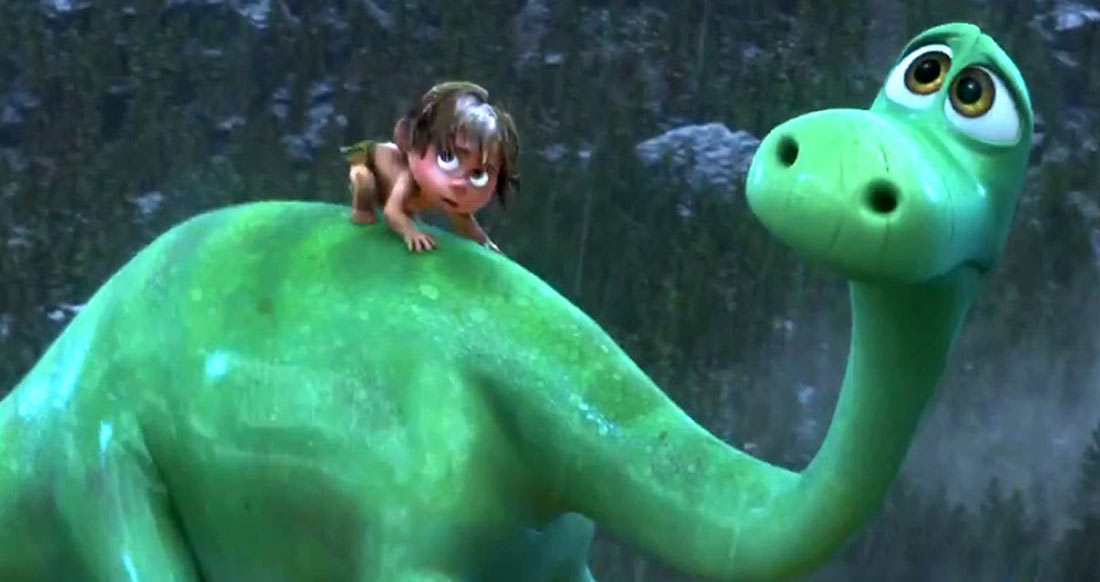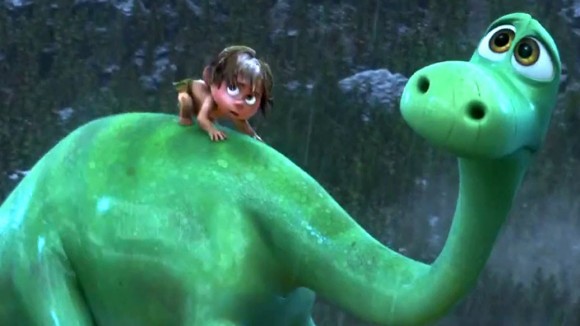

‘The Good Dinosaur’ Could Make $400 Million, And Still Become Pixar’s First Flop
In the rarefied universe of Hollywood, movie studios typically know within the first couple weeks whether a film will be a money-maker or not, and prospects don’t look good for Disney/Pixar’s The Good Dinosaur, which stumbled badly in its second weekend.
Based on the early U.S. numbers ($77.6 million after 14 days), as well as a lackluster international launch, Variety published a piece announcing that the film is “shaping up to be Pixar’s first box office failure.” The analysis is based on the film’s budget — an estimated $200 million due to a mid-production directorial shake-up — and an additional $150 million on marketing, which pushes the astronomical spend into the neighborhood of $350 million.
Because the film studio has to share box office receipts with theatrical exhibitors, Disney’s break-even point on the film hovers around $500 million, and the film’s current box office trajectory has it ending up in the $400 million range.
It’s hard to imagine a world where a film that makes $400 million would be considered a flop — for example, no film by Japanese legend Hayao Miyazaki has ever even come close to making that amount — but Pixar’s situation is nothing new in Hollywood feature animation. Ballooning budgets helped make Disney’s hand-drawn feature animation division unsustainable in the early-2000s, and more recently, DreamWorks has embarked on a major cost-cutting program to rein in costs at its feature division.
When studios attain this level of fiscal bloat, they have to expect that every one of their films will be not just a hit, but a MEGA-hit, an obviously unsustainable strategy in Hollywood. But the most negative consequence of ballooning budgets is that as a studio’s films become more expensive to make, the studio becomes more resistant to taking creative risks. And as the risk-taking decreases, so too do the innovations that made the studio’s films popular in the first place. It’s a difficult cycle to break without a hard reset of the sort that Walt Disney Animation Studios did when it wholly committed itself to CG animation a few years ago, sparking a rebirth with films like Tangled, Frozen, Wreck-It Ralph, and Big Hero 6.
For now, creative decay appears to be setting in at Pixar in ways that would have been unheard of just a few years ago. The studio will return to its franchise safety net next year…and the year after that…and the year after that…and again, the year after that. Indeed four of the studio’s next five announced films will be sequels based on established franchises: Finding Dory, Cars 3, Toy Story 4, and The Incredibles 2.
This upcoming lineup assures that Pixar will keep Disney investors happy for the foreseeable future, but don’t be surprised if a few years from now moviegoers start longing for the good ol’ days when Pixar made original films like The Good Dinosaur.

.png)